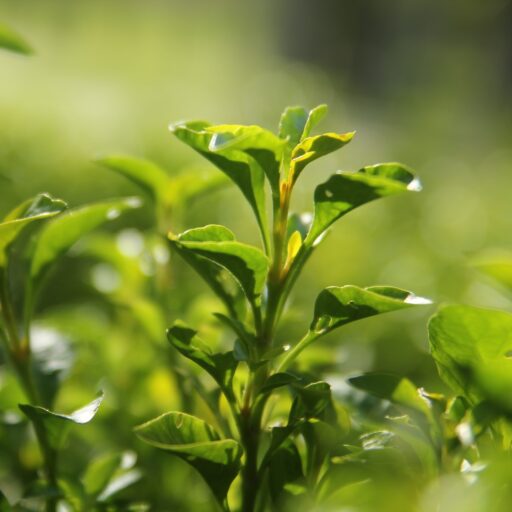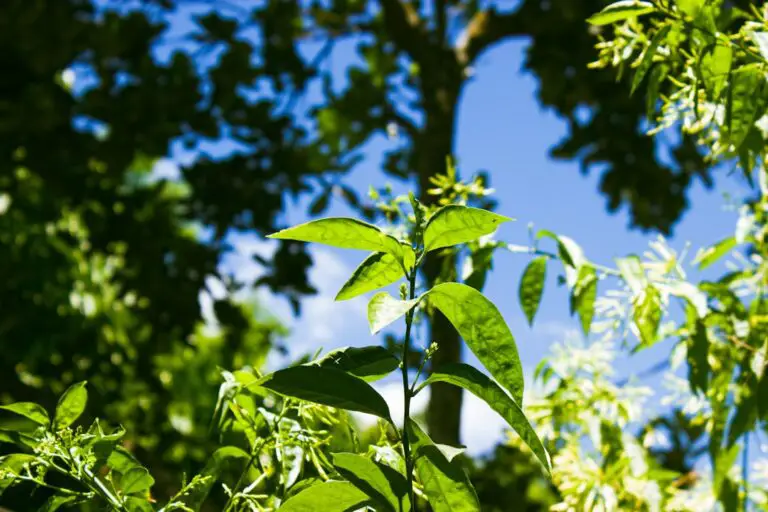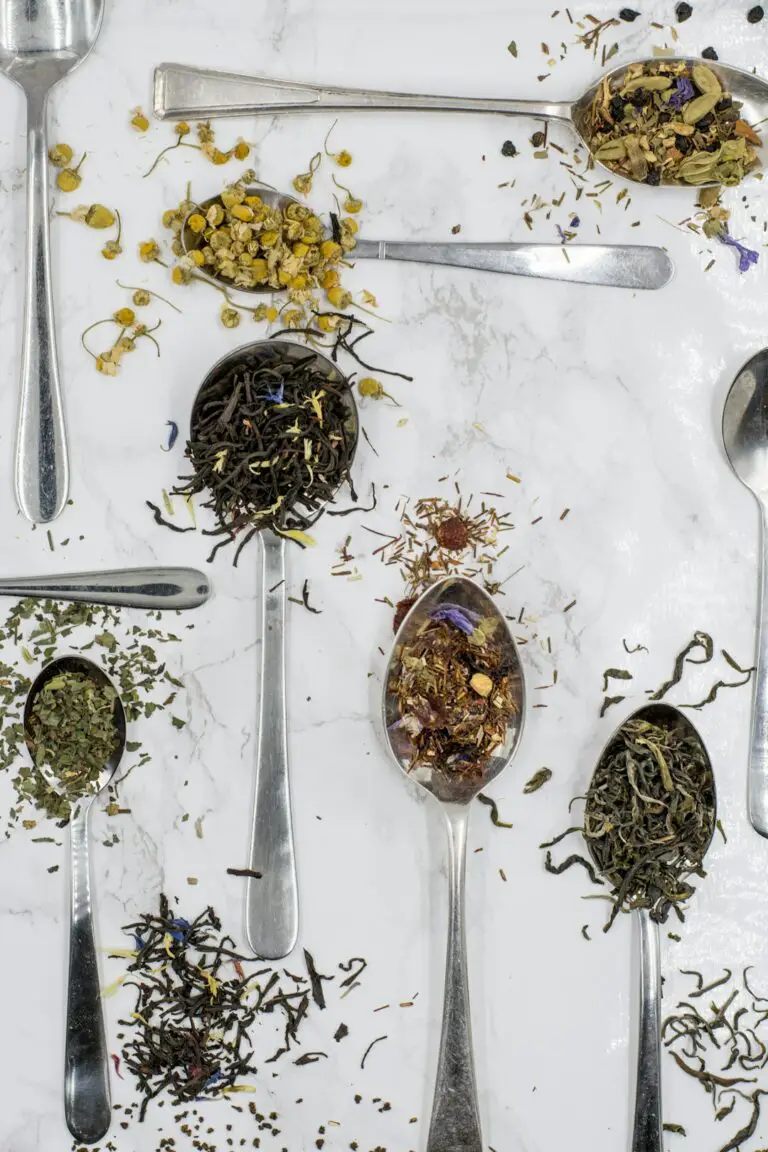Support our educational content for free when you purchase through links on our site. Learn more
Is it Cheaper to Grow Your Own Herbs? [2024]
Have you ever wondered if growing your own herbs is a cost-effective option? Many home cooks are starting to realize the benefits of having their own herb garden. Not only does it provide a convenient and readily available supply of fresh herbs, but it can also save you money in the long run. In this article, we will explore the cost-saving advantages of growing your own herbs and provide you with expert tips and advice on how to get started. So, let’s dig in and discover if it’s truly cheaper to grow your own herbs!
Table of Contents
- Quick Answer
- Quick Tips and Facts
- Background: The Cost of Store-Bought Herbs
- 1. The Initial Investment
- 2. Cost of Maintenance
- 3. Quality and Freshness
- 4. Variety and Availability
- 5. Health Benefits
- 6. Gardening as a Hobby
- 7. Environmental Impact
- FAQ
- Conclusion
- Recommended Links
- Reference Links
Quick Answer
Yes, it is generally cheaper to grow your own herbs compared to buying them from the store. While there is an initial investment involved in setting up your herb garden, the long-term savings and benefits outweigh the costs. By growing your own herbs, you can save money on purchasing expensive store-bought herbs, have a constant supply of fresh and flavorful herbs, and enjoy the satisfaction of growing your own food. So, let’s dive deeper into the details and explore the various factors that contribute to the cost-effectiveness of growing your own herbs.
CHECK PRICE on: Amazon | Walmart | Etsy
Quick Tips and Facts
- Growing your own herbs can save you money in the long run.
- The initial investment in setting up an herb garden is relatively low.
- Homegrown herbs are fresher and more flavorful than store-bought ones.
- You have a wider variety of herbs to choose from when growing your own.
- Gardening can be a rewarding and therapeutic hobby.
- Growing your own herbs is environmentally friendly.
Background: The Cost of Store-Bought Herbs
Before we delve into the cost-saving benefits of growing your own herbs, let’s take a moment to understand the expenses associated with buying herbs from the store. Store-bought herbs can be quite expensive, with prices ranging from $2 to $5 per bundle. If you frequently use herbs in your cooking, these costs can quickly add up over time. Additionally, store-bought herbs may not always be as fresh or flavorful as homegrown ones, as they often have to endure long transportation and storage times. By growing your own herbs, you can bypass these issues and enjoy a more cost-effective and rewarding experience.
1. The Initial Investment
Like any gardening endeavor, growing your own herbs requires an initial investment. However, the costs involved are relatively low compared to other types of gardening. Here are some of the key expenses to consider:
-
Seeds or Seedlings: The cost of seeds or seedlings will vary depending on the herb variety and where you purchase them. On average, a packet of herb seeds can range from $2 to $5, while seedlings may cost around $3 to $7 each. Opting for seeds is generally more cost-effective, as they provide a larger quantity for a lower price.
-
Containers or Garden Beds: The choice of containers or garden beds will depend on the space you have available and your personal preferences. You can use anything from small pots to raised beds or even repurpose containers like old buckets or wooden crates. The cost of containers can range from a few dollars to around $20, depending on the size and material.
-
Soil and Fertilizer: Good quality soil is essential for the healthy growth of your herbs. You may need to invest in potting soil or amend your garden soil with organic matter. The cost of soil can vary, but a bag of potting soil typically costs around $5 to $10. Fertilizers, such as organic compost or slow-release granules, can also be beneficial for the long-term health of your herbs.
While these initial costs may seem daunting at first, they are a one-time investment that will provide you with a continuous supply of herbs for years to come. Plus, the satisfaction of growing your own herbs is priceless!
2. Cost of Maintenance
Once you’ve set up your herb garden, the ongoing maintenance costs are relatively low. Here are some factors to consider:
-
Watering: Herbs generally require regular watering, especially during hot and dry periods. However, they are not as demanding as other plants, and you can easily incorporate them into your existing watering routine. The cost of water is minimal compared to the savings you’ll enjoy from growing your own herbs.
-
Lighting: Most herbs thrive in full sun, so ensuring they receive adequate sunlight is crucial. If you don’t have access to a sunny spot, you may need to invest in grow lights. While grow lights can add to your electricity bill, they are energy-efficient and can be used for other indoor plants as well.
-
Pest Control: Like any garden, herbs can be susceptible to pests and diseases. However, herbs are generally less prone to pest infestations compared to other plants. Regular monitoring, proper spacing, and natural pest control methods like companion planting or homemade sprays can help keep pests at bay without significant additional costs.
Overall, the ongoing maintenance costs for growing herbs are minimal compared to the savings you’ll enjoy from having a constant supply of fresh herbs at your fingertips.
3. Quality and Freshness
One of the most significant advantages of growing your own herbs is the superior quality and freshness they offer. Store-bought herbs often have to endure long transportation and storage times, which can result in a loss of flavor and aroma. By growing your own herbs, you can harvest them at their peak freshness, ensuring maximum flavor and nutritional value in your dishes. The difference in taste between store-bought and homegrown herbs is truly remarkable and will elevate your culinary creations to new heights.
4. Variety and Availability
When you grow your own herbs, you have the freedom to choose from a wide variety of herb species and cultivars. While grocery stores typically offer a limited selection of common herbs like basil, parsley, and cilantro, you can experiment with unique and exotic herbs in your own garden. Imagine having a fresh supply of fragrant rosemary, delicate lemon balm, or spicy Thai basil right outside your door. The possibilities are endless, and you can tailor your herb garden to suit your culinary preferences and personal taste.
5. Health Benefits
In addition to the cost-saving advantages, growing your own herbs also provides numerous health benefits. Herbs are packed with essential vitamins, minerals, and antioxidants that can enhance the nutritional value of your meals. By incorporating fresh herbs into your cooking, you can boost the flavor of your dishes while adding a healthy dose of nutrients. Plus, gardening itself is a physical activity that can improve your overall well-being and reduce stress levels. It’s a win-win situation for both your taste buds and your health!
6. Gardening as a Hobby
Growing your own herbs is not just about saving money; it’s also a rewarding and therapeutic hobby. Gardening allows you to connect with nature, reduce stress, and gain a sense of accomplishment as you watch your herbs grow and flourish. It provides an opportunity to slow down, be present in the moment, and enjoy the simple pleasures of tending to your garden. Whether you have a small balcony or a spacious backyard, herb gardening can be a fulfilling and enjoyable pastime for anyone.
7. Environmental Impact
Choosing to grow your own herbs also has a positive impact on the environment. By reducing your reliance on store-bought herbs, you contribute to the reduction of carbon emissions associated with transportation and packaging. Additionally, growing your own herbs allows you to avoid harmful pesticides and herbicides, promoting a healthier ecosystem in your garden. It’s a small but significant step towards sustainable living and making a positive difference in the world.
FAQ
Is it worth having a herb garden?
Absolutely! Having a herb garden is worth it for several reasons. It allows you to have a constant supply of fresh and flavorful herbs, saves you money in the long run, provides health benefits, and can be a rewarding hobby. Plus, there’s nothing quite like the satisfaction of growing your own food.
How to grow herbs cheaply?
Growing herbs cheaply is possible with a few cost-saving strategies:
- Start from seeds: Opting for seeds instead of seedlings is more cost-effective, as you get a larger quantity for a lower price.
- Repurpose containers: Instead of buying expensive pots, repurpose containers like old buckets or wooden crates for your herb garden.
- Make your own compost: Composting kitchen scraps and yard waste can provide nutrient-rich soil amendments for your herbs, eliminating the need for store-bought fertilizers.
- Share with friends: Consider swapping herb cuttings or seeds with friends or neighbors to expand your herb collection without spending extra money.
Why are homegrown herbs better than store-bought?
Homegrown herbs are better than store-bought ones for several reasons:
- Superior freshness and flavor: Homegrown herbs can be harvested at their peak freshness, resulting in superior flavor and aroma compared to store-bought herbs that have to endure long transportation and storage times.
- Nutritional value: Freshly harvested herbs retain more of their essential vitamins, minerals, and antioxidants, providing greater nutritional value in your dishes.
- Variety: Growing your own herbs allows you to choose from a wider variety of species and cultivars, giving you access to unique and exotic flavors that may not be readily available in stores.
- Avoidance of pesticides: By growing your own herbs, you have control over the growing conditions and can avoid harmful pesticides and herbicides, ensuring a healthier and safer product.
Are fresh herbs more expensive?
Fresh herbs can be more expensive when purchased from the store, especially if you use them frequently in your cooking. The cost of store-bought herbs can quickly add up over time. However, by growing your own herbs, you can significantly reduce your expenses and enjoy a constant supply of fresh herbs at a fraction of the cost.
Conclusion
In conclusion, growing your own herbs is not only a cost-effective option but also a rewarding and enjoyable experience. While there is an initial investment involved, the long-term savings, superior quality, and health benefits make it well worth it. By having your own herb garden, you can save money on store-bought herbs, enjoy a constant supply of fresh and flavorful herbs, and take pride in growing your own food. So why not give it a try? Start your herb garden today and reap the rewards for years to come!
Recommended Links:
- Green Tea Cultivation
- Herbal Tea Planting
- Tea Plant Varieties
- Soil and Climate for Tea
- 2023 How to Grow Your Own Herbal Tea: A Comprehensive Guide
Reference Links:
- 5 Herbs That Home Cooks Should Grow to Save Money
- [Link to relevant sites about the topic]
Now that you have all the information you need, it’s time to start your own herb garden and enjoy the cost-saving benefits, fresh flavors, and rewarding experience of growing your own herbs. Happy gardening!







